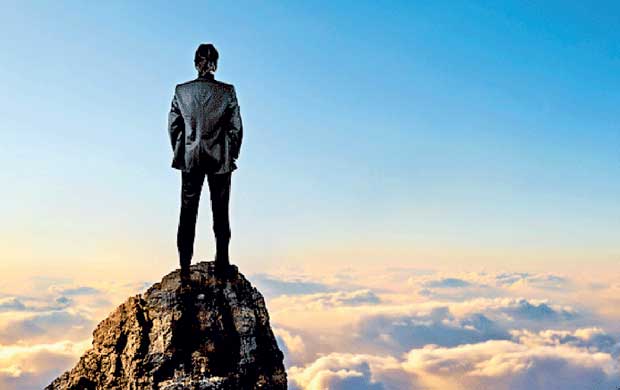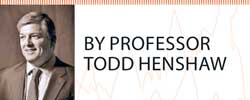10 Jul 2017 - {{hitsCtrl.values.hits}}


I was teaching leadership at a French telecom company several years ago, and the CEO visited on the last day of the programme to take presentations from participants focused on a question he had provided them earlier in the week. The question was, “How can we become more courageous as a company?”
I had coached the participants during the week, helping them think through what it means to be personally courageous as leaders, and how this company, which had not been performing and was still recovering from the economic crisis, could make a comeback.
The discussion quickly turned to the question of why people had become less courageous in the recent past, and how we could promote courageous behaviour across the organisation. The CEO had posed these questions in many prior programmes, but this time, he had struck a chord with participants.
The question prompted a discussion of leadership in the organisation, and the culture that had been shaped by the economic crisis and difficult, yet necessary corporate reactions like downsizing, budget-cutting, and less tolerance for even honest mistakes.
Participants reflected how the organisation had become reactive rather than proactive, and managers had begun to micromanage and had difficulty making timely decisions without consulting senior leadership. Senior leaders stopped talking about the future, where the company was headed, and most important, they had stopped challenging the people in the company to innovate, take the initiative, or focus on the customer.
Courageous leadership
The experience with executives in France prompted me to develop a programme called ‘Courageous Leadership’ that I now teach at Wharton, and to many consulting clients that are feeling the inertia associated with the loss of courage in their leaders, and at many levels in the organisation. So what causes this loss of courage, and how can we enable courageous leadership and culture?
Personal courage is related in the psychology literature to self-esteem, empathy, and confidence, and we can even think of stories that depict acts of heroism and bravado, ‘larger than life’ figures who save the passengers of the ship, or run into a burning building to rescue an elderly resident.
In organizations, courage takes on a different form, and can be better associated with how people deal with increasing uncertainty and complexity in their work. It is in fact during these periods of great uncertainty and volatility that we need greater courage, and better leadership.
Courage is contagious in organisations, and we know that courageous behaviour, especially from a respected and admired leader, generates and promotes greater courage amongst followers across the firm. One clear way to increase courageous behaviour in an organisation is to ensure that leaders are taking smart risks, making bold decisions without complete information, and making hard calls about people and resources.
Answer to the difficult question
Yet we still haven’t answered the most difficult question, which is important to all business leaders today; ‘how can we become more courageous as a company?’ When I initially asked this question in the French programme, executives looked at each other to see who would go first. The silence in the room was uncomfortable and evidence enough that even in this small sample of company leaders, trust was not part of the culture. They couldn’t even start the conversation.
Without trust, courageous action is rare, especially down the organisation. People need to have trust in leadership to make sense of market and firm uncertainty, trust in the strategic direction of the firm, trust in the team that we’ve put together, and trust that the company will demonstrate the same loyalty and commitment to its people that they have provided it over the years.
Trust is the foundation for courage, and without it, organisations founder. Leaders build trust in organisations by following through on commitments, and by providing a clear understanding of the firm’s purpose and direction. They demonstrate trust in managers and employees by empowering and developing them for more responsibility, and they provide transparency in decision-making, especially people decisions involving compensation, promotions, hiring and firing.
The best leaders I’ve known had the capacity to build confidence in others, in teams, and across organisations. They were ‘comfortable in their own skin,’ courageous enough to be vulnerable, approachable and open in leader-follower relationships, and bold in their empowerment and encouragement of others while ensuring accountability for performance.
Courageous leadership is therefore a type of leadership that builds this necessary trust, and allows organisations to reach their full potential through the dedicated efforts of every manager and employee, while promoting innovation, change, experimentation and learning. It creates an environment where people can take smart risks, share new ideas, and make tough decisions about who is on the team, and who needs to go.
Trust and courage
My French client is still experiencing the uncertainty associated with the difficult European economy, but the work that was done to clarify the connection between trust and courage was a catalyst for leadership development and cultural change, led to a change in focus for subsequent leadership programs and even a new definition of leadership in the company.
Leadership workshop in Colombo
Professor Todd Henshaw will conduct a two-day leadership workshop with PwC’s Academy on 20-21 July in Colombo. The programme is aimed for C-Suite leaders and will cover Building and Leading High Performance Teams in VUCA world. For more info [email protected] | 0117719874.
Some of the feedbacks from the previous year programme:
n“Excellent, Highly Actionable in the work place.”- Stasshani Jayawardena- Director at Aitken Spence Hotels
n“I have to thank PwC for bringing this kind of program to Sri Lanka. It was a very interesting, world class, transformational leadership programme. Professor Tod brings huge dimensions of experience which relates to what we can do in our organization.”- Nigel Forbes- Director Supply Chain & HR- Premium International Private Limited
n“I believe it was one of the best leadership programmes that I had attended.”-Azim Rali- Amana Bank
(The author is Director Executive Leadership Programmes at Wharton)
08 Jan 2025 8 minute ago
07 Jan 2025 7 hours ago
07 Jan 2025 7 hours ago
07 Jan 2025 8 hours ago
07 Jan 2025 07 Jan 2025